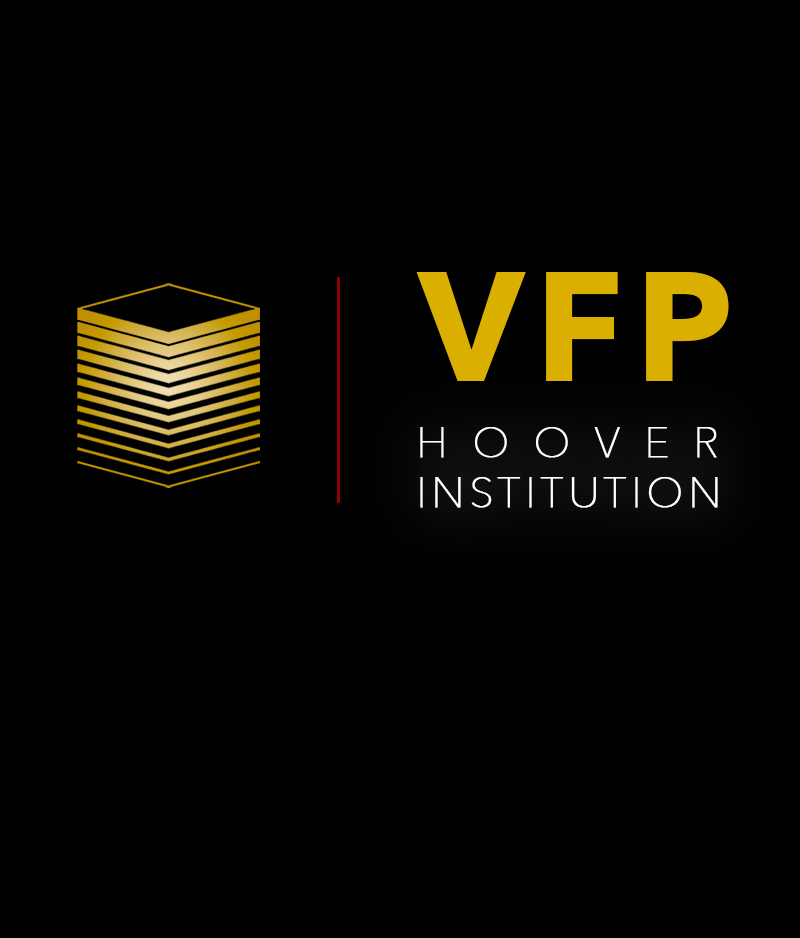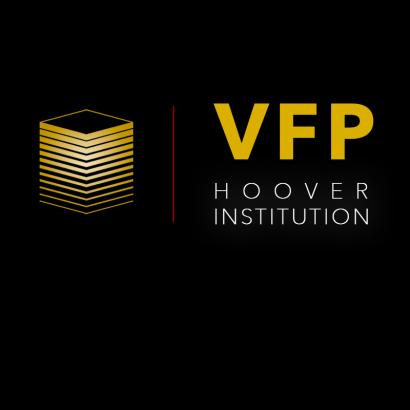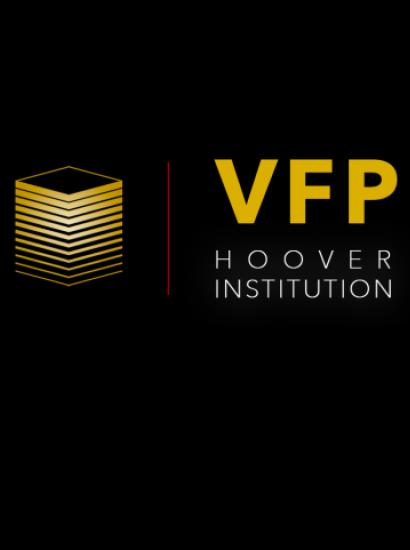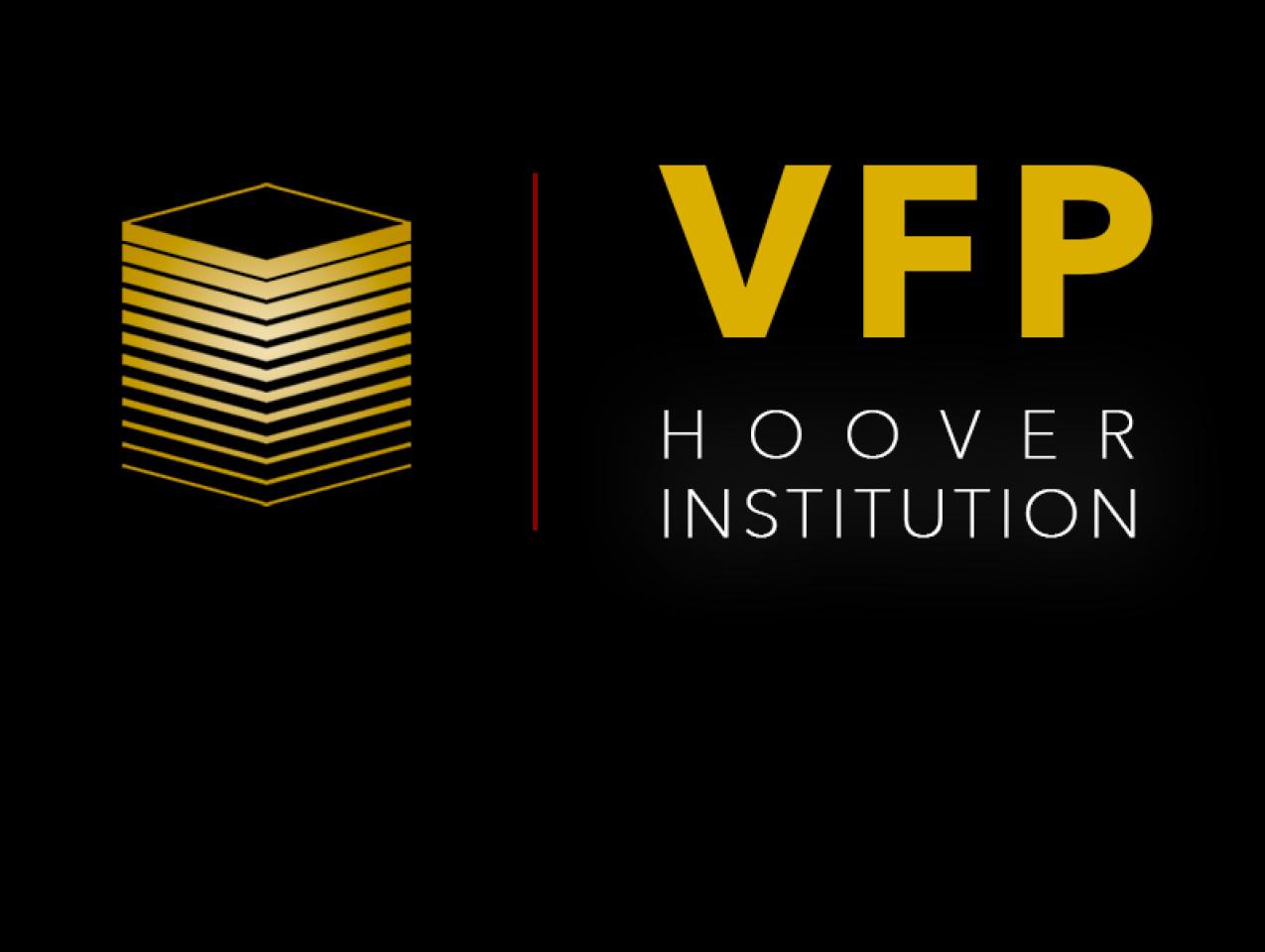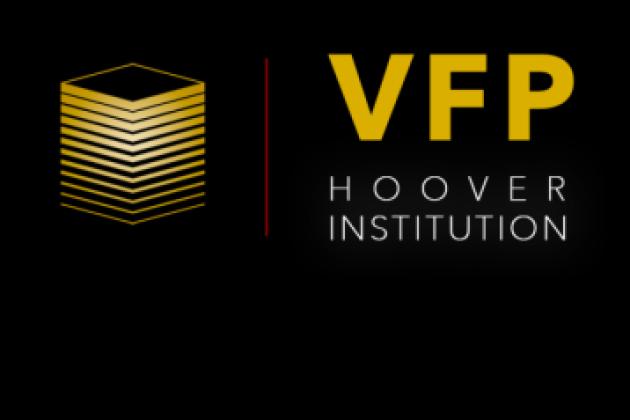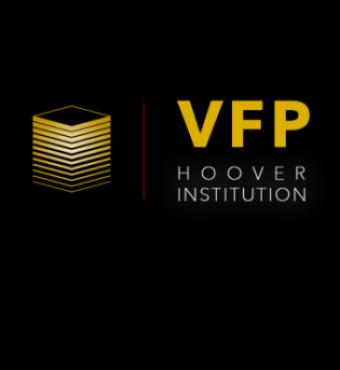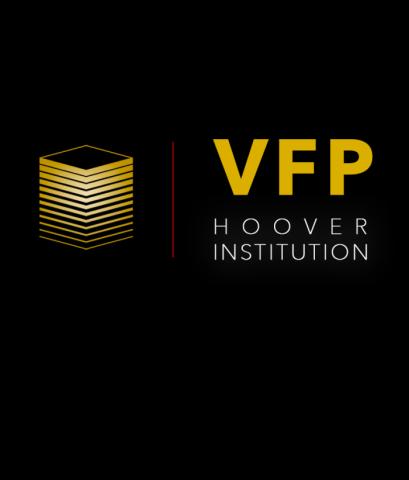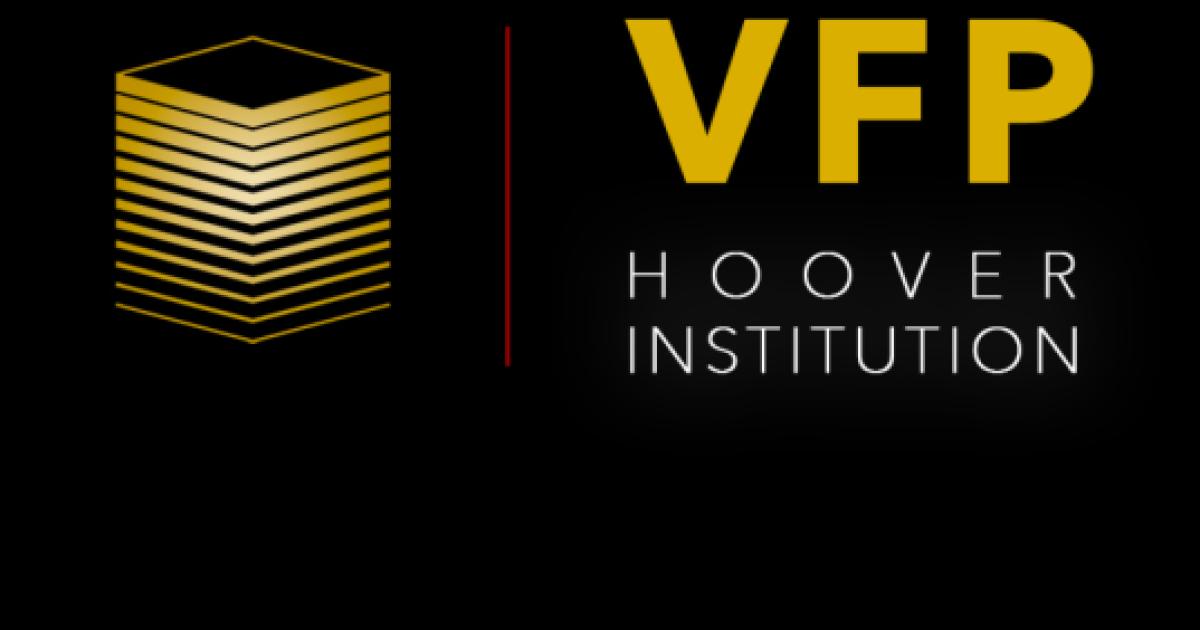Inaugural 2021–22 Class of Fellows to Present Capstone Projects in October
Hoover Institution (Stanford, CA) – The Hoover Institution is now accepting applications for the 2022–23 Veteran Fellowship Program, a nonresident, results-focused program designed for military veterans who bring innovation and commitment to advancing policy ideas in order to affect meaningful change in their communities and networks and in the public sector.
The inaugural 2021–22 class, including nine distinguished leaders from the public, private, and nonprofit sectors, reflects a diverse set of professional disciplines and research interests. The Veteran Fellows engaged in three meetings at the Stanford campus this year and participated in monthly virtual sessions that provided extraordinary opportunities to exchange ideas with Hoover scholars, network with the broader communities of Stanford and Silicon Valley, and make use of the Hoover Institution’s vast academic resources.
Through the course of the academic year, veterans of the 2021–22 class have been working on their capstone projects, in which they are each required to develop actionable solutions for specific policy challenges. Capstone topics have covered an extensive set of pressing issues that include improving wildfire response, reforming immigration processes, enhancing the effectiveness of local government, supporting small business competitiveness in the digital economy, countering human trafficking, and expanding economic opportunities for urban youth. Each of the fellows will present their capstone projects in October 2022.
“I loved my mission when I was on active duty, but I also felt there was a pressing need in our country for better civil and constructive participation and better data-informed governance,” said Nick Mastronardi, a US Air Force veteran and founder and CEO of Polco, a company that conducts public policy polling and provides analytics on government performance. “Hearing Dr. Condoleezza Rice and so many other prominent Hoover scholars not only affirm the importance of this mission but also celebrate it by bringing the power of their networks to augment it has been incredibly amazing.”
Dave Winnacker, a Marine Corps veteran and chief of the Moraga-Orinda Fire District in California explained that his affiliation with the Hoover Institution helped strengthen his message about reducing the risk of wildfires, the subject of his capstone project conducted in partnership with Donnie Hasseltine, the chief security officer at a Bay Area software company, who is also a veteran of the Marine Corps.
“Having identified myself as a Hoover Veteran Fellow, everyone assumes I am a credible expert. This sets the conditions for my message to be heard seriously,” said Winnacker, adding, “The Hoover staff has been incredibly encouraging. This encouragement has pushed me to open my eyes to what is possible and to take some ‘risks’ by engaging at a higher level than what I have been comfortable doing on my own.”
“The unwavering moral support of my project has been nothing short of inspiring,” said Robert Murray, a veteran of the US Air Force and chief of a private equity firm specializing in information technology. Murray’s capstone project focuses on building a blockchain-based platform to help small businesses compete in the digital environment. “I can't thank Dr. Rice and Hoover enough for the privilege of being a part of this amazing program. I highly recommend it for anyone championing a bold vision for a better society and the courage to push the boundaries of the possible."
Below are the capstone topics of the 2021–22 Veteran Fellows, which they will present this October:
Megan Andros (US Army veteran), “Care Coordination: Federal Standards for Health and Human Service Accountability and Improved Client Outcomes”
The goal of Megan Andros’s capstone project is to drive accountability and improve client outcomes in health and human services systems across the country that are focused on addressing social determinants of health, including access to food, transportation, and housing. To achieve these goals, Andros is developing evidence-informed care-coordination standards; crafting a communications strategy, which will target policy makers and raise the profile of care-coordination networks that adhere to the proposed standards; and advancing the science of care coordination through data analysis and an examination of the correlation between a client’s well-being and operating standards such as closed-loop technology platforms and human service navigators.
Philip Caruso (US Air Force veteran), “Establishing a Permanent Special Immigrant Visa Program for National Security”
In his capstone project, Philip Caruso proposes making changes to Special Immigrant Visas (SIVs), which facilitate permanent US residency for foreign nationals in Iraq and Afghanistan who were employed by the US government and who face the risk of physical harm or death in connection to that employment. His goal is to replace the three programs governing visa issuance with one overarching program that 1) simplifies the requirement and enhances the government’s capabilities to process SIVs expeditiously; 2) makes SIVs permanent, which would improve the ability of the government to properly budget for and resource them; and 3) provide mechanisms to offer SIVs to US government employees in other locations such as Syria and Yemen, who do not yet have access to a program through which they can plan for resettlement. Currently, Caruso is advocating for the establishment of a permanent SIV program to Congress and the executive branch in hopes that it is enacted prior to January 2023.
Pete Koziol (US Navy veteran), “Vital National Security Threats Posed by China’s Economic Strategy: New Approaches to the Digital Yuan and Cross-border Private Sector US Investment Flows”
Pete Koziol’s capstone project informs and advocates for new approaches to emerging economic challenges posed by the Chinese Communist Party. It focuses specifically on promoting awareness and advocacy of timely actionable policy recommendations for 1) the rollout of China’s digital yuan; and 2) tax-exempt US institutional investment into China. In the near term, Koziol will cowrite two national-caliber op-eds with like-minded leaders in finance and public policy about economic engagement in China. In the medium term, he will create multimedia content to simplify complex issues and educate policy leaders, the business community, and the public about threats and opportunities for policy change. In the long term, Koziol will work with relevant congressional offices to help craft legislation that addresses these challenges.
Nick Mastronardi (US Air Force veteran) “Local Government Performance: Halting Complacency and Invigorating Agency”
Nick Mastronardi’s capstone project aims to usher in better data-driven governance by public officials that reverses the trend of citizen apathy, polarization, and diminished confidence in government. Mastronardi is currently using survey data by the National Research Center at Polco (of which he is founder and CEO), in combination with other publicly available data sets, to measure the performance of state and local governments based on constituents’ levels of satisfaction. Throughout the project, Mastronardi has identified governments that are most efficiently and effectively improving and preserving the quality of life for their residents. He has also addressed poorly performing governments, on an anonymous basis, and will determine which policies and actions have drained budgets without providing commensurate results. In addition, Mastronardi plans to teach a certificate of mastery program on data-driven governance for city and county managers.
Robert Murray (US Air Force veteran) “Blockchain in the Heartland: Galvanizing Local Economies by Delivering Digital Currencies and other Web3 Technologies to Small Businesses.”
Robert Murray’s capstone project addresses a combination of challenges that small businesses face, which were brought about by the COVID-19 pandemic, including the dominance of national chains; the disruption of small business ecosystems by e-commerce giants; and rising financial transaction costs from banks, web-hosting providers, and credit card companies. To solve this problem set, Murray is aiming to launch a blockchain-based “Shop Local Marketplace” platform in partnership with multiple small business organizations. This platform, which will come into full maturity in the next three years, will provide small businesses across the United States with cryptocurrency, blockchain, and other Web3 technologies that will help them grow and flourish individually.
Mary Kate Soliva (US Army)
In her capstone project, Mary Kate Soliva addresses the problem of human trafficking in her native Guam by stressing an increase in advocacy and education coordination between the US military and civil society. She is building on her network and personal history from Guam to establish the Guam Human Rights Initiative, in order to build knowledge, conduct academic research, and coordinate advocacy to end human trafficking.
Mike Steadman (US Marine Corps) “The IRONBOUND Courage Academy”
“Iron” Mike Steadman’s capstone project addresses the challenge of unemployment in his hometown of Newark, New Jersey, where 37 percent of residents live below the poverty line, twice the national average. To this end, he is raising support and awareness for the IRONBOUND Courage Academy, an innovative capacity-building program for urban youth, especially from low-income families. The Courage Academy is an extension of IRONBOUND boxing, which excels at building up youth mentally, physically, and spiritually. The Courage Academy supports urban youth and helps them build the confidence needed to survive outside the ring and cultivates them with an education in innovation and entrepreneurship, which are needed to improve their work prospects in the future.
Donnie Hasseltine (US Marine Corps) and Dave Winnacker (US Marine Corps), “Market Forces to Address Wildfire Risk in the Wildland Urban Interface”
In a joint capstone project, Donnie Hasseltine and Dave Winnacker are identifying regulatory factors and market forces that prevent the accurate pricing of risk in the insurance marketplace and are working to create better incentives in California regions that are experiencing an increasing number and intensity of wildfires. Their ultimate objective is to design and circulate a comprehensive solution for aligning economic interests in order to improve homeowner preparedness for fire disaster. Such efforts they hope would mitigate wildfires and strengthen community resiliency and public safety.
Click here for more information on the Veteran Fellowship Program.
Click here to apply for the 2022–23 class of Hoover Veteran Fellows. The application deadline is Tuesday, July 12.







